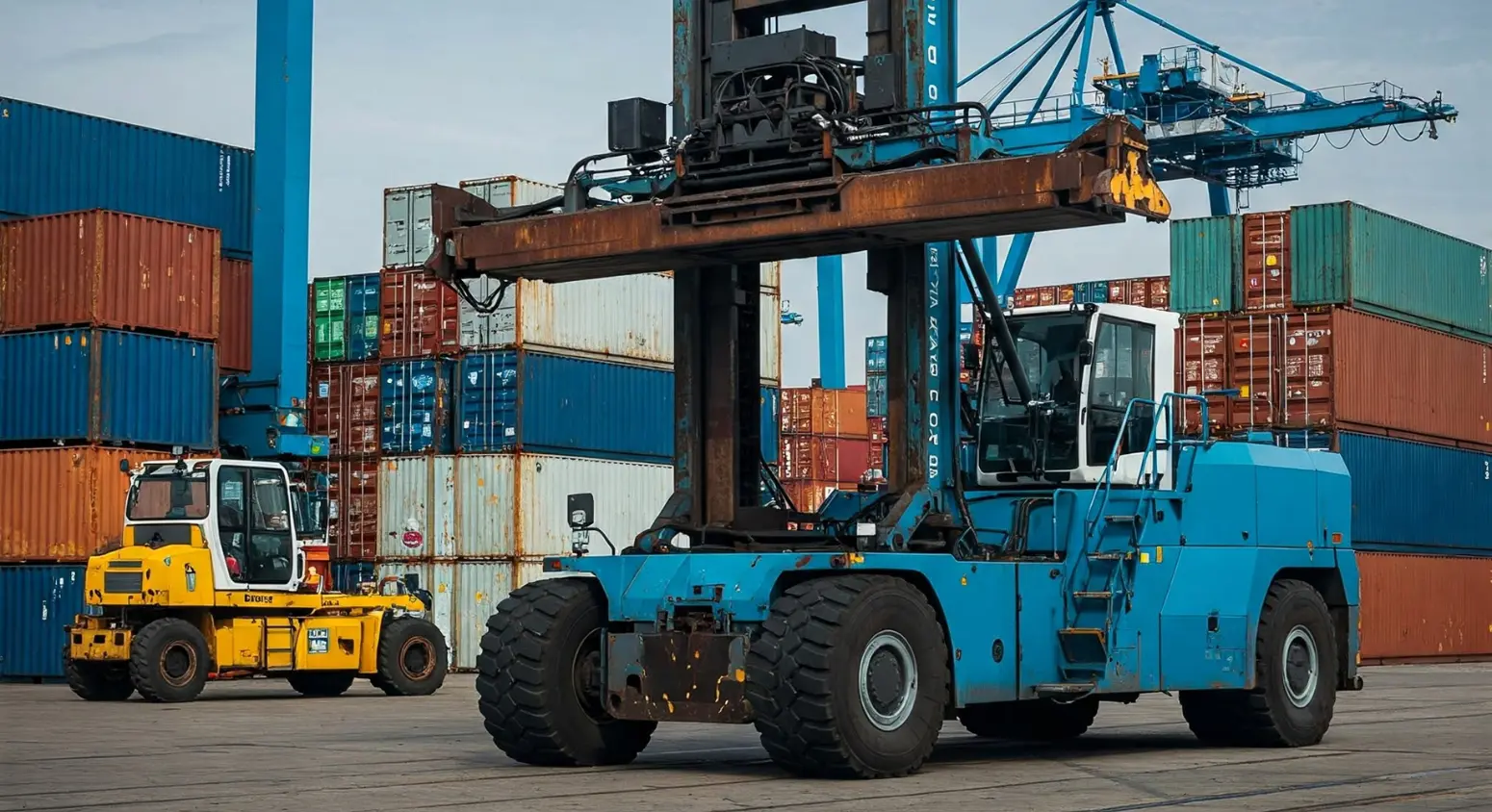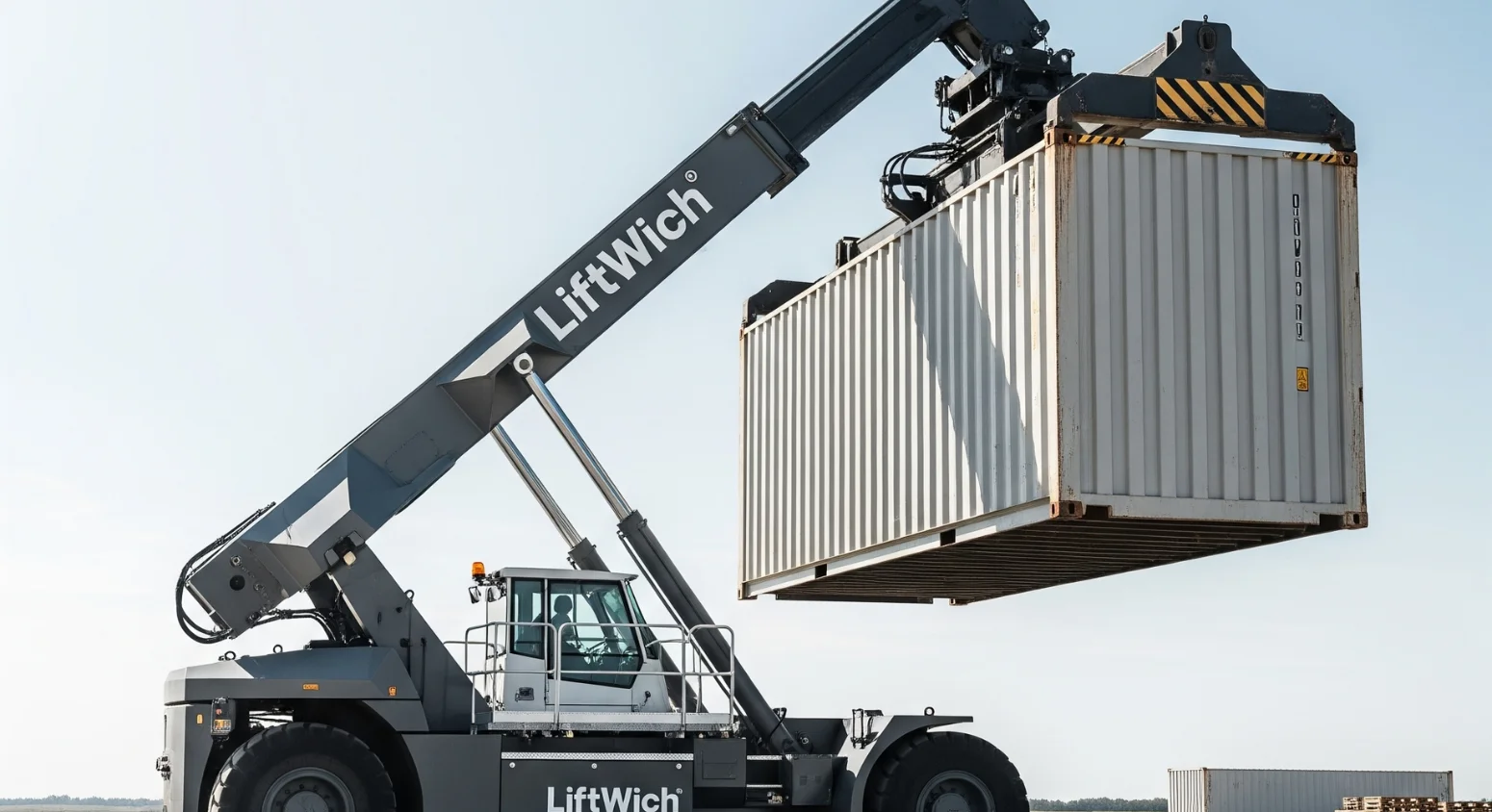Corrosion and rust are two of the biggest threats to container handling equipment, slowly eating away at its strength, functionality, and lifespan. If you’ve ever struggled with deteriorating machinery, you know how costly and frustrating it can be to repair or replace rust-damaged parts. But what if you could prevent corrosion before it starts and extend the life of your equipment?
Whether you’re using container lifting jacks to position heavy loads or a shipping container tow hitch to transport units across rugged terrain, exposure to moisture, salt, and extreme weather can accelerate wear and tear. The key to longevity isn’t just regular maintenance—it’s using the right protective strategies and materials to safeguard your investment.
In this guide, we’ll explore why rust and corrosion occur, how they impact your operations, and, most importantly, how to protect your container handling equipment. From selecting corrosion-resistant materials to applying proactive maintenance techniques, you’ll learn how to keep your equipment in top shape for years to come. Let’s dive in!
Table of Contents
Causes and Risks of Corrosion in Container Handling Equipment
Rust and corrosion are more than just ugly spots on metal—they can weaken your equipment, make it unsafe to use, and lead to expensive repairs. If you’ve ever had to deal with a rusted container jack or a failing shipping container tow hitch, you know how frustrating and costly it can be. But what causes corrosion, and how does it impact your equipment? Let’s take a closer look.
Why Does Corrosion Happen?
Corrosion happens when metal is exposed to moisture and oxygen, creating rust that slowly eats away at the surface. Over time, this can weaken the structure, making it less reliable and more dangerous to use. Some metals are more resistant to rust, but without proper care, all metal equipment is at risk.
Here are the biggest reasons why corrosion happens:
- Water and Humidity – Rain, snow, and even the moisture in the air can cause rust. If your equipment stays wet for long periods, it will corrode faster.
- Salt and Chemicals – If you work near the ocean or use road salt in winter, your equipment is at even greater risk. Salt speeds up the rusting process.
- Changing Temperatures – When metal expands in the heat and contracts in the cold, tiny cracks can form. These cracks let in moisture, which leads to rust.
- Poor Storage and Maintenance – Leaving container movers and shipping container jacks outside without protection speeds up corrosion.
What Happens When Equipment Rusts?
Rust doesn’t just look bad—it hurts performance and safety. Here’s how corrosion affects your equipment:
- Weaker Metal – Rust makes metal brittle, so it can break under pressure.
- Harder to Use – Rusty container lifting jacks don’t work as smoothly, making it harder to lift and move containers.
- More Repairs – Corroded parts wear out faster, leading to frequent (and expensive) repairs.
- Shorter Lifespan – If rust spreads too much, the equipment may need to be replaced long before it should.
Stop Rust Before It Starts
Now that you know what causes corrosion, the next step is protecting your equipment. In the next section, we’ll look at how to choose corrosion-resistant materials and coatings that help your shipping container jack and other tools last longer.
Choosing Corrosion-Resistant Container Handling Equipment
If you want your container handling equipment to last, picking the right materials and protective features is important. Rust and corrosion happen when metal is exposed to moisture, salt, and harsh weather for long periods. But with the right equipment, you can reduce the risk and keep your tools working longer.
What Makes Equipment Resistant to Rust?
Not all equipment handles rust the same way. Some materials and coatings do a better job of keeping metal safe from moisture and corrosion. When choosing container movers or a shipping container jack, look for:
- Galvanized Steel – This type of steel has a zinc coating that helps prevent rust, even in wet conditions.
- Stainless Steel – A strong material that naturally resists rust and lasts longer.
- Powder Coating – A protective layer that keeps water, dirt, and chemicals from damaging the metal.
- Sealed Parts – Keeps water from getting into moving parts, reducing wear and rust buildup.
How TriWich Products Help Prevent Rust
TriWich builds its equipment with long-term durability in mind. Whether you need a HitchWich to tow containers, a LiftWich to lift and position them, or Wheel Dollies to move them smoothly, TriWich products are designed to handle tough conditions while resisting corrosion.
Here’s what makes them a great choice:
- Rust-Resistant Coatings – Protective finishes on LiftWich and HitchWich help stop moisture from causing damage.
- Strong, Weatherproof Design – Wheel Dollies and other TriWich tools are built to handle rain, snow, and dirt without breaking down.
- Less Maintenance, Longer Life – Corrosion-resistant materials mean fewer repairs and replacements.
Why Investing in Quality Equipment Matters
Buying cheaper equipment might save money at first, but rust can lead to costly repairs and replacements. Over time, corrosion weakens metal, making equipment harder to use and even unsafe. Choosing rust-resistant container handling tools like LiftWich, HitchWich, and Wheel Dollies is a smart decision because:
- They last longer, so you won’t need to replace them as often.
- They require less maintenance, saving time and effort.
- They work better, keeping your operations smooth and safe.
The Bottom Line
The best way to protect your container handling equipment is to start with the right materials and coatings. LiftWich, HitchWich, and Wheel Dollies are built to last, helping you avoid rust-related problems. In the next section, we’ll look at simple maintenance steps that will keep your tools in great condition for years to come.
Advanced Maintenance Techniques to Prevent Corrosion
Basic upkeep like cleaning and storage goes a long way in preventing rust and corrosion, but if you want your container handling equipment to last even longer, advanced maintenance techniques can make a big difference. Whether you’re using a shipping container jack, tow hitch, or container movers, these extra steps will help keep your equipment strong and reliable for years.
1. Perform Deep Cleaning and Rust Removal
Even with regular cleaning, dirt and rust can build up in hard-to-reach places. Deep cleaning ensures your LiftWich, HitchWich, and Wheel Dollies stay in top condition.
- Use a wire brush or sandpaper to remove small rust spots before they spread.
- Apply a rust converter to treat affected areas and stop further corrosion.
- Use compressed air or pressure washers to clean moving parts that trap moisture and debris.
2. Grease and Lubricate Moving Parts
Friction from constant use wears down metal surfaces, making them more vulnerable to rust. Proper lubrication helps protect key components of your container lifting jacks and shipping container tow hitches.
- Apply grease to joints, hinges, and lifting mechanisms to prevent metal-on-metal wear.
- Use high-quality lubricants designed for outdoor and heavy-duty equipment.
- Reapply lubricant after exposure to rain, snow, or salty environments to maintain protection.
3. Upgrade to Heavy-Duty Replacement Parts
Sometimes, factory-standard parts wear out faster than expected. Upgrading certain components to more corrosion-resistant materials can improve performance and extend the life of your equipment.
- Use stainless steel bolts and fasteners that resist rust better than standard steel.
- Upgrade worn-out bearings and bushings to high-quality, weatherproof alternatives.
- Replace damaged hydraulic seals and hoses to prevent leaks that can lead to rust.
4. Apply Anti-Corrosion Treatments
If your shipping container jack or container movers are frequently exposed to moisture, consider extra protection with professional anti-corrosion treatments.
- Electroplating or galvanizing adds a durable, rust-resistant coating to metal parts.
- Ceramic or epoxy coatings provide an extra barrier against moisture and chemical exposure.
- Wax-based sealants protect undercarriages and hidden areas that are prone to rust.
5. Schedule Preventative Maintenance Checks
Preventative maintenance saves time and money by catching small issues before they turn into major failures. A regular inspection routine will help you keep your LiftWich, HitchWich, and Wheel Dollies performing at their best.
- Inspect all metal surfaces for signs of rust, cracks, or wear.
- Test lifting and towing mechanisms to ensure smooth operation.
- Check for loose bolts, fasteners, or hydraulic leaks that could lead to breakdowns.
- Keep a maintenance log to track cleaning, lubrication, and repairs over time.
Protect Your Investment with Proper Maintenance
Taking these extra maintenance steps will extend the lifespan of your container handling equipment and keep it working like new. By using the right rust-prevention techniques, upgrading parts, and staying ahead of repairs, you’ll avoid costly downtime and ensure safe, efficient operations.
Conclusion: Keep Your Equipment Safe from Rust
Rust can slowly damage your container handling equipment, making it harder to use and more expensive to fix. But with proper care, you can keep your shipping container jack, tow hitch, and container movers working like new for years.
By choosing rust-resistant equipment like LiftWich, HitchWich, and Wheel Dollies, keeping your tools clean, applying protective coatings, and checking for rust often, you can avoid costly repairs and keep your work running smoothly.
So, are you ready to protect your equipment? A little effort today can save you time and money in the future.
Frequently Asked Questions
1. How often should I check my equipment for rust?
Check your equipment after each use and do a deep inspection once a month. Catching rust early will prevent bigger problems later.
2. How can I stop my shipping container tow hitch from rusting?
Keep it clean and dry, apply a rust-resistant spray or grease, and store it in a covered area when not in use.
3. Are TriWich products made to resist rust?
Yes! LiftWich, HitchWich, and Wheel Dollies are built with strong, weatherproof coatings to protect against rust and last longer.
4. What should I do if I see rust on my equipment?
Scrub off small rust spots with a wire brush or sandpaper, then apply a rust converter and a protective coating to stop it from spreading. If the rust is too deep, replace the damaged part to keep your equipment safe.



